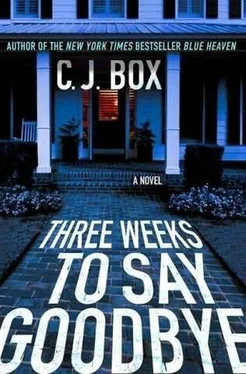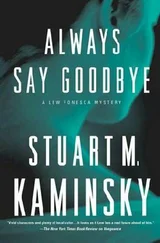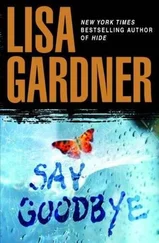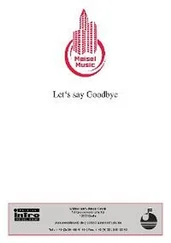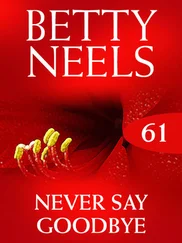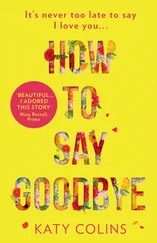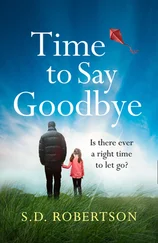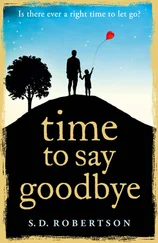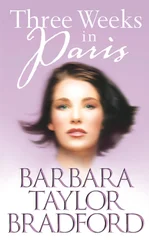“Me too,” I said.
“So, when did you get in?”
They always ask “So, when did you get in?” even though it was obvious I had just arrived.
I said, “I’m just hoping my luggage got here with me.”
Then I recalled Linda Van Gear’s first maxim of tourism marketing: It is always about them. It is never about you.
“It’s good to see you,” I said. “You’re looking very good. Do you have a booth at the show?”
“It’s good to be seen,” he said as an aside. “No, I never get a booth here. You think I want to talk to bloody Germans?” He whispered that last part, but not quietly enough, I thought. “No, I’m here because it’s the best place to see all of you and get some business done. All of you all in one place-it’s brilliant, even though I despise Berlin. And the whole bloody Fatherland, for that matter. They have no sense of humor here, and that’s just to start with.”
I quickly looked around to see if we were being overheard. I locked eyes with a green-uniformed Polizist who looked back at me, dead-eyed.
“Where are you staying?” he asked.
“The Savoy. On Fassenstraße.”
He nodded with recognition. “Fine place. I know it. English ownership. Still have that great cigar bar?”
“I think so.”
“Brilliant. How about I meet you there to night, and we go to dinner afterwards. Your treat.” And he laughed.
“Perfect,” I said enthusiastically, thinking I would rather put a bullet in my head-or at least get some sleep.
“Seven o’clock then,” he said, patting my shoulder again. “I was hoping I’d see you. I have a lot of questions for you- important concerns. All on the QT, of course.”
I nodded as if I knew what he was talking about.
The carousel belt groaned, and luggage appeared. The crowds rushed the apparatus, as if their items would appear sooner as a result of their aggression.
“I’ve got to get out of this hellhole,” Harris said, sneering at the crowd and patting the carry-on he’d brought with him from London. “See you at seven, then.”
I reached out to shake his hand goodbye, but he’d already shouldered his way through a family of Turks toward the exit. The Polizist who’d overheard his remarks watched him the entire way, burning eyeholes into the back of his suit jacket.
THERE WERE SKIFFS OF dirty snow in the shadows between buildings and along the River Spree as my cream-colored Mercedes taxi-something I still got a thrill from, a Mercedes taxi-sliced through the traffic of midmorning. The skies were leaden. Through breaks in the trees, I could see sky cranes in the east bobbing their heads like prehistoric ocean birds.
I looked at my wristwatch again. It was 2:30 A.M. at home. I couldn’t wait to call. I envisioned Melissa and Angelina sleeping in their beds, and Cody tossing and turning on the couch. And-it came out of nowhere-Garrett Moreland sitting in his Hummer down the block, watching my house in the dark.
I straightened up and shook my head, trying to shed the image.
The taxi driver was observing me in his rearview, and when I locked eyes with him, he looked away.
THE HOTEL WAS FILLED with WTB people from countries all over the world. My room wasn’t ready, so I stored my luggage and shoved my hands in my pockets and went for a woe-is-me walk along the Kurfürstendamm, the main shopping street in Berlin, known as the Ku’Damm and pronounced “Koo-Dahm.” High-end stores, restaurants, bustle. I couldn’t believe there were still peddlers selling pieces of the Wall, whose last authentic remnants disappeared nearly twenty years before, as well as ersatz East German caps and “ Stasi ” binoculars made in Asia. Jet-black-skinned Africans sold jewelry and knockoffs on blankets that could be gathered up at two seconds’ notice if a Polizist strolled down the block. There were women shopping in furs and carrying bags, and the smell of cigarette smoke hung in the cold damp air. The smell reminded me of Cody.
Something I couldn’t explain nagged at me. I blamed the jet lag for my inability to determine what it was, but it was like a pebble in my shoe I couldn’t locate and discard.
Berlin still had a sort of prewar men-in-hats-women-with-shoulder-pads feel to it, although every year, it seemed, there were fewer Germans and more North Africans, Turks, and Arabs on the streets.
I walked as far as the big department store, the KaDaWe, before crossing the street and working my way back. Unlike home, where we’d been watching every penny for months since we’d adopted our baby, I was on the bureau expense account now. My wallet was flush with euros, and my CVB credit card was primed and ready. I couldn’t go crazy, but I could eat an early lunch of white sausages with a beer in sight of the Broken Tooth, a bombed-out church the Berliners had chosen not to reconstruct after WWII.
As I sat and ate and drank I tried to figure out what was bothering me about my walk, what I’d seen that had set me on edge. Finally, as I sat back and waited for the bored waiter to bring me back my change and the hated receipt, I realized it wasn’t what I’d seen on the street but what I hadn’t seen that was eating at me.
Children. There were no children. Obviously, the older kids would be in school. But in the entirety of my walk I hadn’t come upon a single stroller or young mother with a baby. It was as if it were a street, a city, filled only with adults. I thought how strange, how horrible it would be to live in a world without children. Until that moment, the notion had never even occurred to me. Here in Berlin, because of the choices they’d made for what ever reason, there were no little ones to punctuate the day with noise and harmless chaos. Instead, there was a sense of quiet and antiseptic order.
As I folded my receipt into my wallet, I withdrew a photo of Angelina taken a few months ago. In it, she was beaming and reaching out for the camera to try and gum the lens.
Even though it was just a photo, she was the only child in sight, and they were trying to take her away from us, to turn our house-our lives-into cold and quiet Berlin.
DESPITE WHAT LINDA VAN GEAR had said about my job being in danger, I decided I would rebook a flight home the next day after my meeting with Harris. I feared for my wife and my daughter, and I already missed them. Linda would be angry, but if I returned with the AmeriCan deal in hand, she’d get over it.
When I got back to the hotel I had a message from Malcolm Harris. He needed to postpone our dinner meeting until the end of the week. Something had come up, and he needed to return to London for several days.
I balled up the message and threw it across the hotel lobby.
FOR THE NEXT FOUR days, I was in hell. Waiting for Malcolm Harris to return to Berlin was torture. I was in bad humor- annoyed with cloying tour operators and journalists and the kissy-kissy greetings of Europeans (one cheek or two, two cheeks or three-it was maddening) and cigarette smoke and crowds. Our Colorado shell-scheme looked good from the outside but was held together with wires and tape and everything about my job and my life right then felt as false and cheap and ready to collapse as our booth.
I talked to Melissa every night and things were fine but the tension was building because we both thought something could explode again at any moment. She wanted me home. I wanted to be home. Garrett could show up at our house. Luis’s friends might come calling. Cody could go on a bender. Moreland might decide three weeks was too long to wait.
I obsessively checked my watch during the show and in the hotel room at night, trying to chart what Melissa and Angelina would be doing eight hours behind me. The only highlight of those days was when Melissa put Angelina on the phone. I talked to her and heard silence back for several beats before she squealed “Da?” with absolute wonder that made me laugh out loud with joy.
Читать дальше
